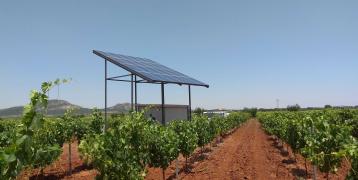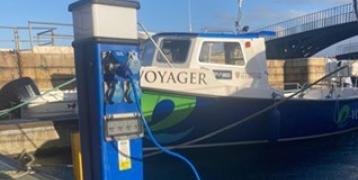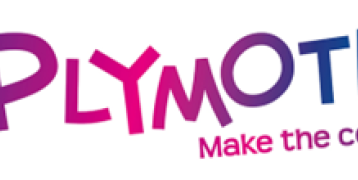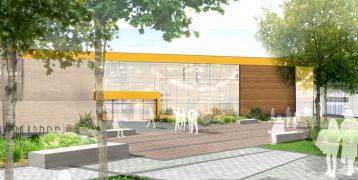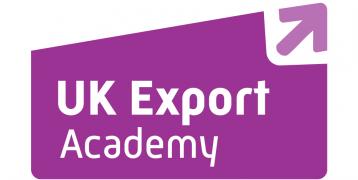
United Kingdom
This page provides information on first level control in the United Kingdom and FAQ on the consequences of Brexit.. You may also contact the Interreg Europe representative in the United Kingdom directly.
Contacts
There is one point of contact for enquiries about the programme based at the Department for Communities and Local Government (DCLG). Each part of the UK also has a website with specific regional information.
Department for Levelling Up, Housing and Communities
Floor 4/G6
Eland House
Bressenden Place London
SW1E 5DU United Kingdom
Department for Levelling Up, Housing and Communities
Floor 4/G6
Eland House
Bressenden Place London
SW1E 5DU United Kingdom
2021-2027
The United Kingdom is no longer taking part in the 2021-2027 programming period.
2014-2020
This section provides information on the system set up for first level control in the UK for the 2014-2020 programming period. The costs associated with this control are indicated so that they can be planned for in project budgets.
The system
The United Kingdom uses a decentralised first level control system.
Once the project is approved the Ministry will contact the project partners in the UK about appointing a first level controller. The Ministry will provide all the necessary guidance on the appointment process. The project partners will need to propose an independent internal or external controller to the Ministry using an online form which should be sent to a dedicated e-mail address. The approval will also be completed online by the Ministry. No paper copies will be used in the process.
The approbation body
The body responsible for the approbation of first level controllers is the Ministry of Housing, Communities and Local Government. The address and contact persons are stated below.
| Address | Contact |
|---|---|
| Address Ministry of Housing, Communities and Local Government |
Contact Amarjit Singh Narain (Arni) Neil Marsh |
The costs
The costs resulting from the control can be reported as eligible costs in compliance with the relevant EU-regulations and programme rules.
On-the-spot checks
In compliance with the article 23 (4) of Regulation (EU) No 1299/2013 of the European Parliament and of the Council of 17 December 2013 and article 125 (5) and (6) of Regulation (EU) No 1303/2013 of the European Parliament and of the Council of 17 December 2013, on-the-spot verifications will be carried out for each project partner at least once during the project lifetime.
For first level controllers controlling more than one project partner, sampling may be possible on the conditions that the method is well justified and documented.
FAQ on Brexit and 2021-2027 programming period
The Withdrawal Agreement between the EU and the UK means that projects will be able to continue as planned, under the same arrangements and rules as before. If the end of the transition period means any changes for your project, the joint secretariat (JS) and/or UK national contact point will contact you. For now, you should carry on delivering your project as planned.
The following questions may help if you have specific queries. You can download them all here.
The Withdrawal Agreement between the UK and the EU confirms that 2014-20 ETC programmes will be able to continue with UK project partners, and UK project partners can continue delivering their projects in line with existing programme rules and timescales.
Yes. The Withdrawal Agreement between the EU means that UK organisations can still apply for funding and can deliver projects until project closure. UK organisations can and should continue to secure funding and deliver successful projects for the current programming period.
The Withdrawal Agreement means that your project can continue as planned, including under the existing terms of your contract. You are still subject to the same eligibility rules as set out in your contract, you still have to follow all audit and first level control requirements, and you will remain liable for any irregular expenditure that you claim.
The Withdrawal Agreement means that your project is still able to continue, and please be reassured that the programme wants to support you to deliver successfully. If you are concerned that you may no longer be able to undertake some activities in full, you should discuss this with your JS contact.
Your project can continue as planned under the existing terms of your contract, and all expenditure remains eligible providing it is delivered in line with the EU and programme eligibility rules as set out in your contract. You will still have to follow all audit and first level control requirements, and you will remain liable for any irregular expenditure that you claim.
Office and administrative expenditure, which includes bank charges for administering an account, is covered by your existing overheads budget line, i.e. a flat rate of 15% of each partner's staff costs.
If there are any such additional costs, these would be eligible for your project provided they are in line with programme rules and the terms of your contract. You may want to speak with your JS officer to clarify any specifics relating to your project.
Please be aware that the expectation is that you manage this within the existing project budget and the limits of the budget flexibility rules.
Guidance on this is contained at https://www.gov.uk/guidance/eu-domain-names-what-you-need-to-do-before-the-end-of-the-transition-period, and this will apply to all UK organisations. You should follow the advice here, including to contact your domain registrar to understand what this means for you. You should also contact your lead partner or joint secretariat contact to seek their advice.
A number of UK-based ETC project partners have already transferred domain registrations to one of their EU project partners, and this may be something that you wish you explore within your project.
Additional guidance for the Interreg Europe programme: as the Interreg Europe programme is hosting all project websites on the programme website, the programme does not expect this to be an issue for most Interreg Europe project partners.
If the UK and the EU reach a data sharing agreement to enable the free flow of data, you can continue sharing data within your project. However, if no agreement is reached, you may be unable to do so in the same way you do now. The UK national contact points and the programme will ensure you are kept up-to-date on this, and will provide any further guidance as necessary. More information is available here: https://www.gov.uk/guidance/using-personal-data-in-your-business-or-other-organisation-after-the-transition-period
Yes, you will still be able to access the programme IT systems you need to be able to manage your project and receive payment.
The Withdrawal Agreement between the UK and the EU means that the UK will continue to participate in current programmes until they end. UK organisations currently acting as lead partners in projects should therefore continue to undertake all functions and responsibilities as at present.
For the 2021-27 funding period, the UK will not participate in Interreg programmes. This means that the UK partners are considered as partners from countries outside the programme area.
They may participate in an Interreg Europe project if their participation contributes to its delivery. However, these partners must provide their own funding since they are ineligible to receive funding from the ERDF under the 2021-2027 period.
Further information can be found in the programme manual Section 3.4.1.3 Funding for partners from outside the programme area.
COVID-19 measures
A note for project partners from the United Kingdom:
ETC programmes are separately adapting to support project partners through the COVID-19 crisis. Each managing authority is setting out what it means for their programme and project partners.
Please contact your lead partner, relevant joint secretariat / managing authority, or visit the relevant programme website.
Alternatively, you can contact the MHCLG ETC team.
Northern Ireland
The system
Northern Ireland uses a centralised first level control system.
The expenditure of project partners from Northern Ireland will thus have to be checked and confirmed by the following body:
| Address | Contact |
|---|---|
| Address Special EU Programmes Body |
Contact FLC signatory: Mr Paul Sheridan Contact person : Lisa Kelly |
The costs
The above-mentioned body will perform the first level control free of charge to project partners from Northern Ireland.
On-the-spot checks
The first level control body will organise on-the-spot-checks on a sample basis using a risk-based approach.
Get inspired
Good practices from this country
See all
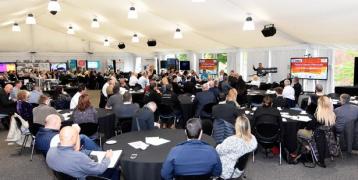
Ensuring the participation of SMEs in retrofit schemes in Plymouth
Including SME's in large scale domestic retrofit projects

Clwstwr - putting innovation at the core of the media sector in South Wales
The Clwstwr programme was a five-year project that aims to boost the volume and quality of research and development (R&D) activities undertaken by screen industry companies, both within South Wales...










